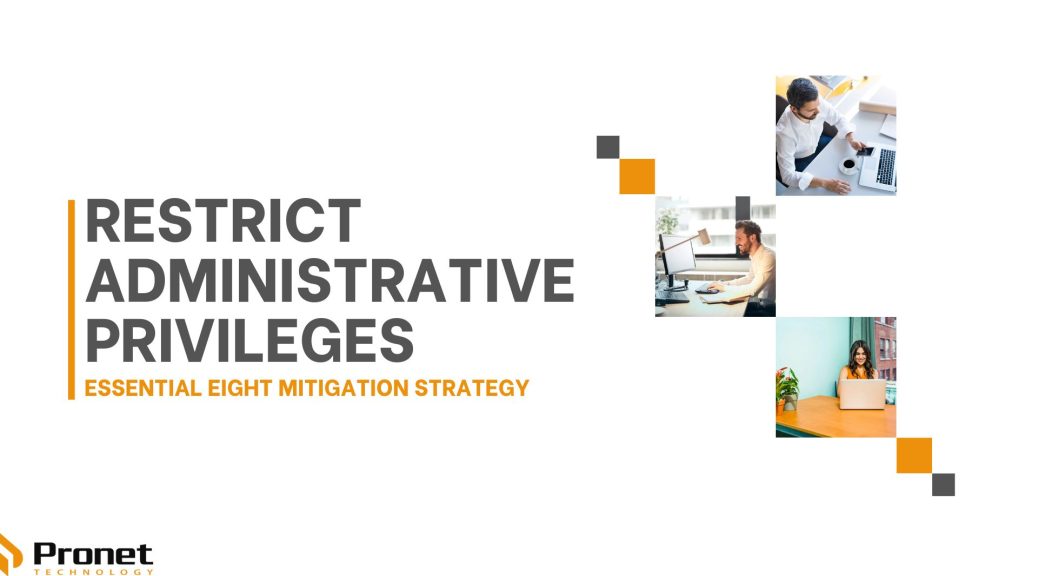How to Restrict Who Accesses Certain Folders or Programs in Your Business

If you’re concerned about the security of your business’ data and want to restrict access to certain folders or programs in your organisation, keep reading.
As businesses become more digital, the need for data security has increased. It is crucial to prevent unauthorised access to sensitive information and protect it from potential cyberattacks. Restricting access to certain folders or programs is an effective way to secure your data as it allows you to control who has access to what data and ensures that only authorised personnel can access sensitive information.
Certain users or teams within your business may need a higher level of access than others, as giving someone access to change permissions and install updates to apps and the device is necessary, but when someone within or outside your business gets access to this, they can accidentally or intentionally cause immense damage.
By restricting who has access, it makes it difficult for malicious users to affect certain applications, obtain sensitive information or change privileges to prevent staff from being able to work effectively.
Restricting administrative privileges is also one of the Australian Cyber Security Centre’s (ACSC) Essential Eight mitigation strategies against cyber threats, so if you’re currently looking at implementing this framework, keep reading to learn about how to do this.
How to Restrict Who Accesses Certain Folders or Programs in Your Business
To restrict who accesses certain folders or programs in your business, you can follow these steps:
- Identify Tasks: Start by identifying the tasks that require administrative privileges, then work out which staff members are required and authorised to carry out these tasks as part of their roles.
- Create User Accounts: Create user accounts for each employee in your organisation. Each employee should have a unique username and password to access the system.
- Assign Access Rights: Assign access rights to each user account. You can set permissions to read, write or execute files in specific folders or programs. Make sure users have the least amount of privileges needed to carry out their roles.
- Use Encryption: Use encryption to protect sensitive data from unauthorised access. Encryption ensures that only authorised personnel can access the data, even if it falls into the wrong hands.
- Implement Access Control Policies: Implement access control policies to restrict access to certain folders or programs. You can set policies based on job roles, departments or projects.
- Monitor Access Logs: Monitor access logs to identify any unauthorised attempts to access sensitive data. This can help you identify security breaches and take corrective measures to prevent future incidents. Make sure to revalidate staff requirements to have a privileged account frequently so that when their role changes or they leave the business, you can remove these privileges.

What is Not Effective?
The ACSC advises that there are a number of approaches that do not qualify as restricting administrative privileges and which can actually increase the risk to an organisation.
- Only minimising the total number of privileged accounts
- Allowing for shared non-attributable privileged accounts
- Allocating administrative privileges to users temporarily
- Placing non-admin users in groups with users that have administrative privileges
Benefits of Restricting Access to Certain Folders or Programs in Your Business
Restricting access to certain folders or programs in your business can provide several benefits, including:
- Improved Data Security: Restricting access to sensitive information can improve data security and prevent data breaches.
- Compliance with Regulations: Restricting access to certain folders or programs can help you comply with regulations and standards, such as The Privacy Act and Essential Eight.
- Reduced Risk of Cyber Attacks: Restricting access to sensitive data can reduce the risk of cyberattacks and protect your business from potential threats.
- Increased Control: Restricting access to certain folders or programs can give you increased control over who has access to what data.
Restricting access to certain folders or programs in your business is a crucial step in ensuring the security of your data. By creating user accounts, assigning access rights, using encryption, implementing access control policies and monitoring access logs, you can prevent unauthorised access to sensitive information and protect your business from potential cyberattacks. Don’t neglect this important aspect of your business security, act today and protect your data!
Remember, the security of your business data is essential to your success and you must take all necessary measures to protect it from unauthorised access. With the right security measures in place, you can rest assured that your data is safe and your business is protected.

Frequently Asked Questions
- What is the best way to restrict access to certain folders or programs in my business?
The best way to restrict access to certain folders or programs in your business is to create user accounts, assign access rights, use encryption, implement access control policies and monitor access logs.
- What are the benefits of restricting access to certain folders or programs in my business?
The benefits of restricting access to certain folders or programs in your business include improved data security, compliance with regulations, reduced risk of cyberattacks and increased control over who has access to what data.
- Can I restrict access to certain folders or programs based on job roles or departments?
Yes, you can restrict access to certain folders or programs based on job roles or departments by implementing access control policies.
- How can I monitor access logs to identify unauthorised attempts to access sensitive data?
You can monitor access logs to identify unauthorised attempts to access sensitive data by using software tools that track user activity and notify you of any suspicious activity. This can help you identify security breaches and take corrective measures to prevent future incidents.
- What are the consequences of not restricting access to sensitive data in my business?
Not restricting access to sensitive data in your business can result in data breaches, cyberattacks, financial losses, legal liabilities and damage to your business’ reputation.



